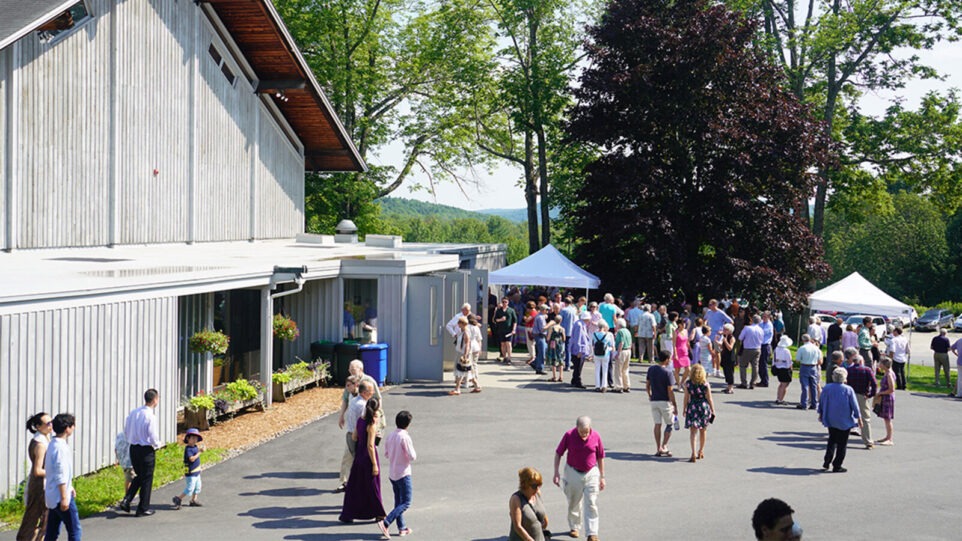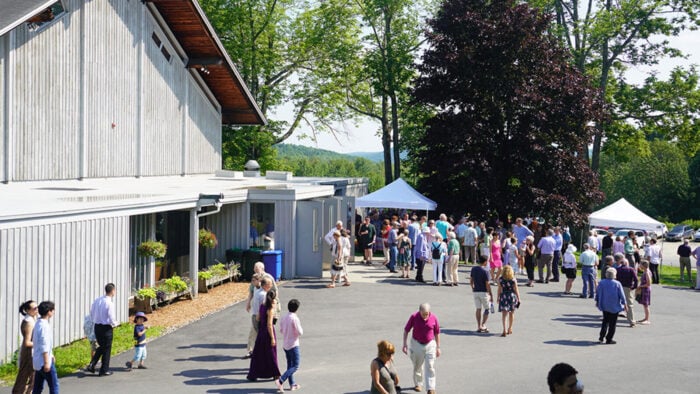Monday - Friday at 7:00 pm

Marlboro Music
Exploring Music is an adventure — an expedition through the world of classical music. We pick a theme each week and follow the music wherever it leads us. Over the years we’ve explored Shakespeare and music, have followed the lives of many composers (a sort of five-part mini-series), and visited the music of various locales — Paris, Venice, Spain, Hungary, the Pacific Rim. Each five-episode program is a musical journey that focuses on a particular, genre, music festival, or classical theme. It’s a sort of Outward Bound for music, with Bill McGlaughlin as our guide to make sure we all get home safe and sound.
Listeners' emailed suggestions have played a very important role in choosing themes. We’ve recorded over two hundred adventures, and the ideas keep turning up. We don’t think we’ll exhaust the possibilities. Exploring Music is familiar and welcoming, and is where you feel at home on your first visit and can’t wait to get back to sample what the series has come up with for its next five-episodes.
The player below features a continuous five hour loop of the most recent Exploring Music episode.
Marlboro Music
April 22, 2024
Each summer in Vermont, the sign that greets everyone coming to the Marlboro Music is “Caution: Musicians at Play.” Artistic director Mitsuko Uchida explained to Bill that Marlboro, founded in 1951, has a historic link that goes back directly to composers of the Second Viennese School, to Brahms, and all the way to Mozart and Haydn. Exploring Music’s summer visit ...
Mozart: Bright Lights, Big City
April 15, 2024
In 1781, when Mozart was 25, he got the boot from the archbishop and moved from his hometown of Salzburg to the music capital of Vienna. This cosmopolitan city opened Mozart’s eyes and ears to a creative world that he expresses so beautifully in his music. This week we will hear some of his greatest symphonies, piano concertos, and operas ...
Music of Ukraine
April 8, 2024
Bill has been thinking a lot about Ukraine lately, so he created this new week exploring its music and storied history. We will hear works that evoke Ukraine’s folktales, and its landscape by Mykola Kolessa. Then Bill’s friend, pianist Lydia Artymiw, helped him collect more Ukrainian music, and he listened to her stories of her father’s homeland. She’ll share her ...
Roaring 20s
April 29, 2024
In the 1920s, concert halls rocked with everything from jazz to airplane propellers and radio became a multi-billion-dollar industry. Bill says art and literature flowed like bathtub gin. We’ll start this week in New York with the 1926 Metropolitan Opera premiere of John Alden Carpenter’s ballet Skyscrapers and end the week in the then-troubled city of Berlin with the early ...
New Wine in Old Bottles
May 6, 2024
This is a week of transcriptions, orchestrations, fantasies, rhapsodies, and reminiscences: the creative efforts of composers who give new vitality to existing music by transforming it. This is much more than composers finding inspiration from others- these are works that use the structure and tunes of another composer to create a new piece in their voice. Bill includes folk music ...




